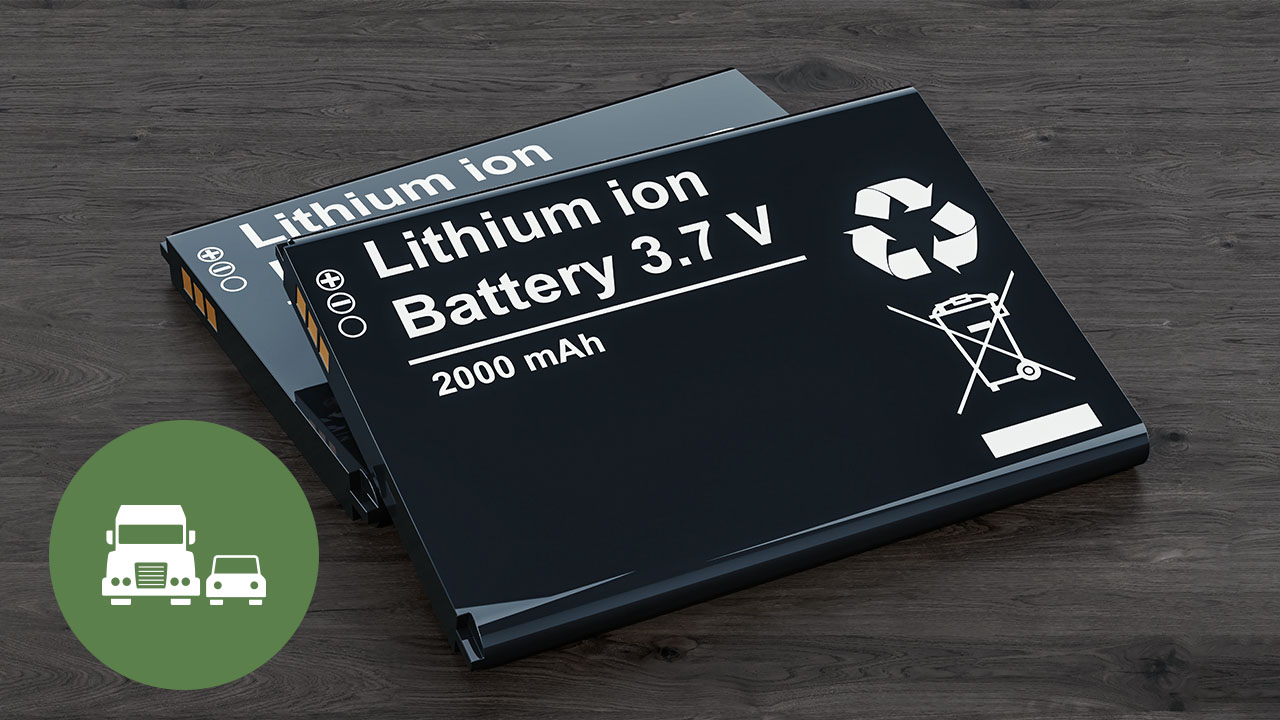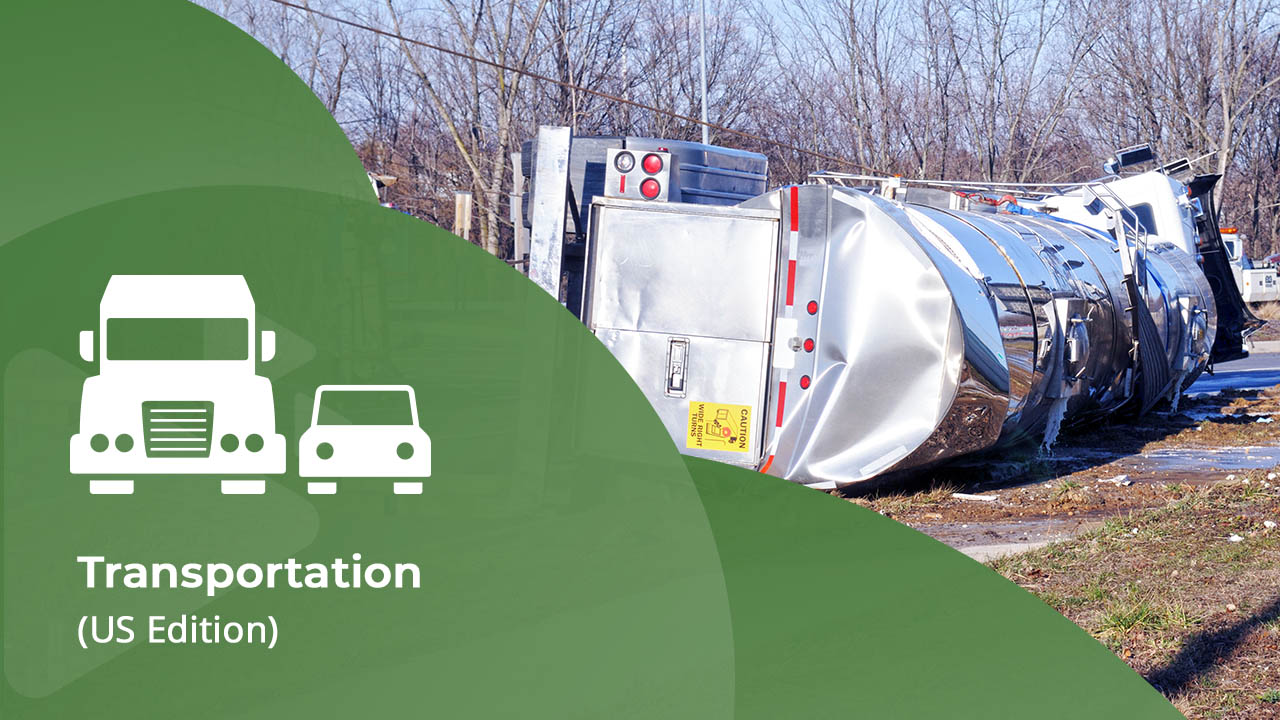DOT: Security for Shipment of Hazardous Materials
- 5 topics | 54m
- Includes Assessment
- Up to 30 languages
- Transcripts
According to the US Department of Transportation (DOT), over 800,000 shipments of hazardous materials are transported in the United States every day. The materials shipped include those of chemical, petroleum, radioactive, explosive, and poisonous natures. Of the 800,000 shipments, almost 769,000 are transported by truck on the nation's roads, with the rest divided among rail, pipeline, water, and air. These hazardous materials – or 'hazmats' – are classified by the DOT according to the types of hazard they present and must be transported under the proper regulations set out by the DOT. This course examines the DOT's security requirements relative to the shipment and transportation of hazardous materials. In addition, it explains the hazard classes and provides examples of the placards used when transporting hazardous materials. The course also outlines the basic elements of a security plan, defines the employers who require a plan, and explains the training required for employees of companies with plans in place. This course was developed with subject matter support provided by EnSafe Inc., a global professional services company focusing on engineering, environment, health and safety, and information technology. Please note, the course materials and content were current with the laws and regulations at the time of the last expert review, however, they may not reflect the most current legal developments. Nothing herein, or in the course materials, shall be construed as professional advice as to any particular situation with respect to compliance with legal statutes or requirements.
WHAT YOU WILL LEARN
-
identify the DOT requirements for the transportation of hazardous materials
-
identify the importance of the secure transportation of hazardous materials
-
match the hazard classes with their numbers as defined by the Department of Transportation
-
match the hazard class divisions with their numbers as defined by the Department of Transportation
-
match the transportation placards to the hazardous materials they represent
-
identify which placards should be used for transporting hazardous materials in a given scenario
-
identify the requirements of a security plan
-
recognize examples of the steps taken to develop a security plan
-
recognize examples of employers required by the DOT to implement a security plan
-
match the type of training required by the DOT to examples of employees involved in hazardous material transportation
-
identify the in-depth and awareness training requirements for employees responsible for implementing a security plan
IN THIS COURSE
-
Transportation of Hazardous Materials7m
-
Hazard Classes10m
-
Placards for Hazardous Materials13m
-
Elements of a Security Plan12m
-
Employers, Employees, and Security Plans8m
YOU MIGHT ALSO LIKE
COMPLIANCE-COURSE
DOT 2: Packaging, Labeling, Marking, and Placarding
COMPLIANCE-COURSE
DOT 4: Loading and Storage


